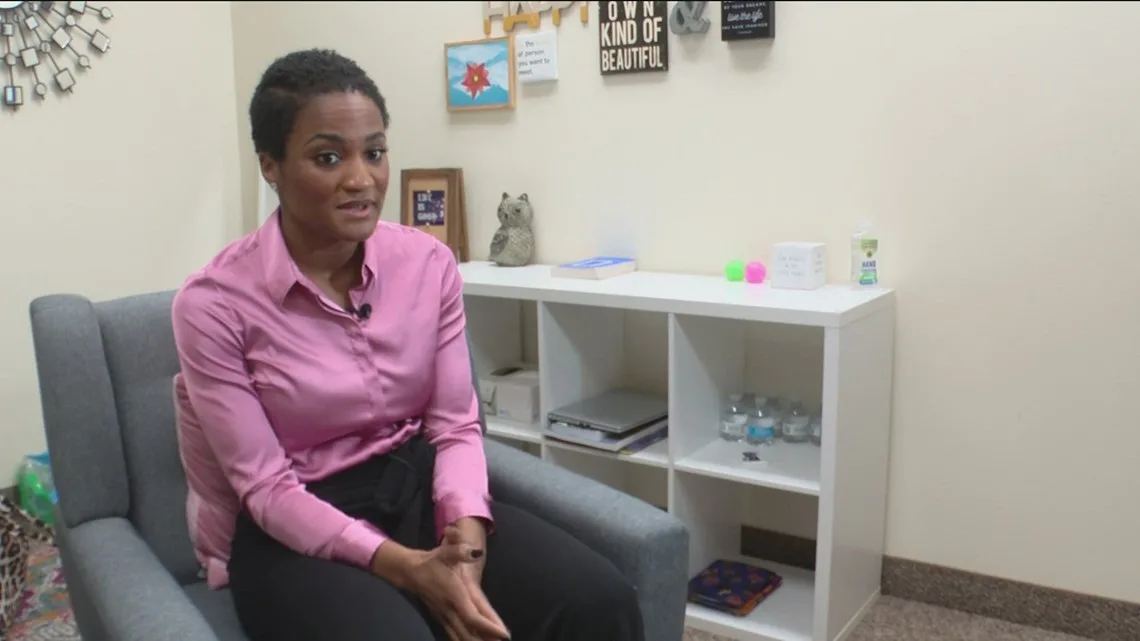
Financial and generational factors are among the reasons for the lack of representation.
BROOKLYN PARK, Minn. — From the arrival of the first slaves in the United States, to the civil rights movement, to the recent racial reckoning that took root here in Minnesota — Ebony Eromobor says being Black in America comes with an ongoing sense of trauma.
“We are continuing to experience things,” Eromobor said. “So it’s not like post-traumatic anything. It’s traumatic, this is actively happening.”
That’s why she says it’s so important for Black Americans to take care of their mental health.
Eromobor is the founder and executive director of Village Support Therapy.
“We specialize in providing culturally specific mental health care and we have a special focus on the Black community across the diaspora,” Eromobor said.
She’s in the center of an issue that’s two-fold — getting more Black people to embrace therapy and getting more Black people to provide it.
Eromobor says as far as that goes, there are major discrepancies.
“Trying to find a Black therapist is like trying to find a needle in a haystack,” she said. “Nationwide, Black clinicians only make up about 4% of the industry and then locally here in Minnesota, we only make about make up about 1.6%.”
That can tie into people seeking care.
“I’m not saying that all Black people need to see a Black mental health provider,” she said. “However, there is endless research and anecdotal evidence that shows that Black people are more likely to seek out care when they can connect with someone that looks like them.”
There are other factors that hold Black people back from therapy — whether it’s financial barriers or generational ones.
“When I think about Black families, how oftentimes you’re told by the elders, you know, ‘You don’t go to outside folks, you don’t tell your business,'” she said. “But then also, I think a lot of that has to do with kind of a lot of the systematic injustices that Black people have experienced.”
Some of the hesitation is based on a stubbornness built on centuries of resilience.
“We’ve been through things, your ancestors have been through worse, we continue to go through things,” Eromobor said. “You know, we can’t sit around and cry about it.”
So consider this your wake-up call — don’t wait until it’s too late.
“I think a lot of people feel like they need to wait until they’re like in a crisis state, but you can take a proactive approach,” she said. “Maybe you’re not in a crisis state, but you still have some things that are impacting your mental health.”
If you’re seeking help, check out these resources:
WATCH MORE ON KARE 11+
Download the free KARE 11+ app for Roku, Fire TV, Apple TV and other smart TV platforms to watch more from KARE 11 anytime! The KARE 11+ app includes live streams of all of KARE 11’s newscasts. You’ll also find on-demand replays of newscasts; the latest from KARE 11 Investigates, Breaking the News and the Land of 10,000 Stories; exclusive programs like Verify and HeartThreads; and Minnesota sports talk from our partners at Locked On Minnesota.
Watch the latest local news from the Twin Cities and across Minnesota in our YouTube playlist:


